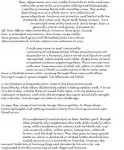Kikuras
First Post
Yes well I've openly admitted to using the rules as guidelines. But, and I'm not saying you're wrong, I'm saying here's why I do it: First I use it to encourage people to play to their character. I shouldn't have to, but when Joe creates the most learned, bookish, well-read character you can, I don't want him to constantly get shown up by Bob the Barbarian just 'cause Bob happens to get lucky on his rolls. Second: I want the party to feel like, while at times they may have strokes of inspiration, they are dependent on each other for different things. Sure, anyone can forage for food, but the ranger forages for food better, so it's best to let the ranger forage while the rest of the party sets up camp or does other things.
It's too easy for players to get it in their heads that they don't need anyone else around and a good roll can replace a good party member.
Obviously there requires a balance of allowing characters to play their roles, and also for players to make their rolls.
In my current party most of us try and discus who should make the attempt at a skill, even if failure is not dangerous, because it's logical for party members to look to the 'expert' first (even if they're not an expert on paper). Meanwhile our sorcerer is spamming his d20 because 'why not'?
Me, I'm more of a 'many doors enter into one room'. A barbarian and a wizard (int) might both have knowledge on owlbears, one from books, and one from tribal stories (survival or nature). The fighter might have know something (athletics?) of orcs, as he and his buddies discus the powerful orc body while at the gym. Rogues might get a clue to a dragon's blindsight because word on the street is you can't rob a dragon because he can see you even when he's blind (stealth?)



